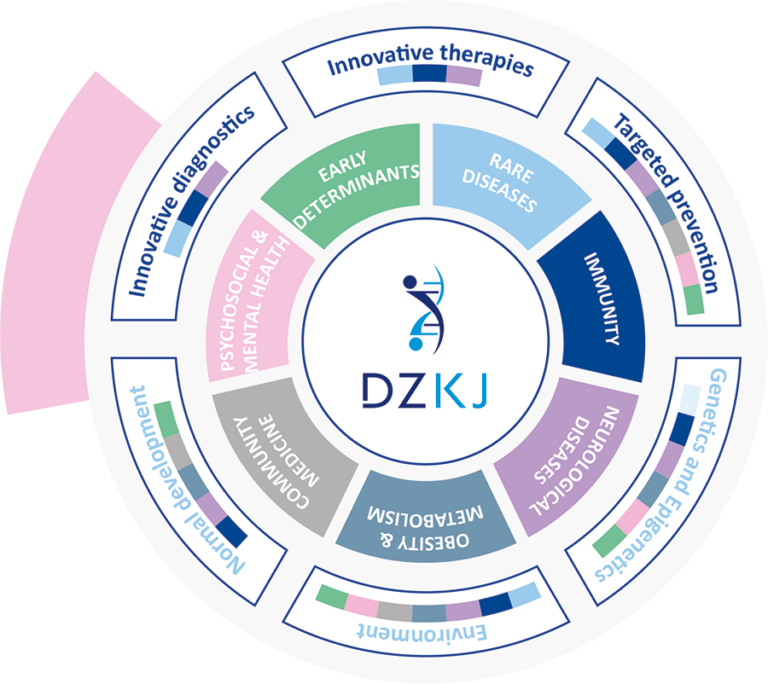Psychosocial Health, Mental Health
Research for children and young people - for a healthy life
Psychosocial Health, Mental Health
Research for children and young people - for a healthy life
Background
Psychosocial and psychological problems often co-occur with chronic physical illnesses, exacerbating both physical health problems and health behaviors. To address this complex interplay, it is essential to investigate the causes and interactions of these conditions using diverse methods. Additionally, healthcare inequalities must be minimized through early and targeted diagnosis.
Key aspects of research
The DZKJ will prioritize the psychosocial and psychological dimensions of physical illness. Through a joint platform, research programs and methodologies can be exchanged and aligned between the DZKJ and the German Center for Mental Health (DZPG).

Objectives
The primary goal during the development phase is to identify age-specific characteristics of mental disorders associated with physical illnesses. This will be achieved through the development of screening tools, identification of biomarkers, and establishment of clinically relevant and innovative outcome measures. Initial studies will aim to develop new neurobiological, immunological, and psychosocial interventions based on these characteristics.
Using a community-based approach, barriers to prevention, early detection, and intervention will be identified through participatory involvement (PPPI), leading to the development of models for risk-adapted prevention and intervention.
Objectives
The primary goal during the development phase is to identify age-specific characteristics of mental disorders associated with physical illnesses. This will be achieved through the development of screening tools, identification of biomarkers, and establishment of clinically relevant and innovative outcome measures. Initial studies will aim to develop new neurobiological, immunological, and psychosocial interventions based on these characteristics.
Using a community-based approach, barriers to prevention, early detection, and intervention will be identified through participatory involvement (PPPI), leading to the development of models for risk-adapted prevention and intervention.
Contact Persons


Prof. Dr. med.
Veit Roessner
University Hospital and Medical Faculty Carl Gustav Carus, TUD Dresden University of Technology
